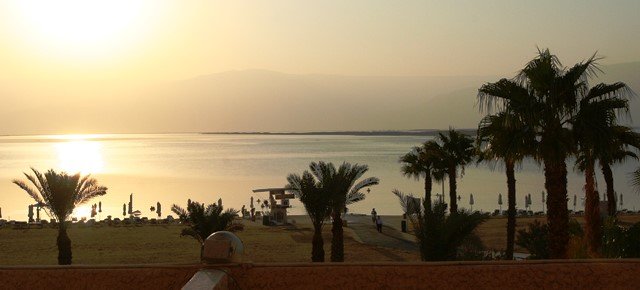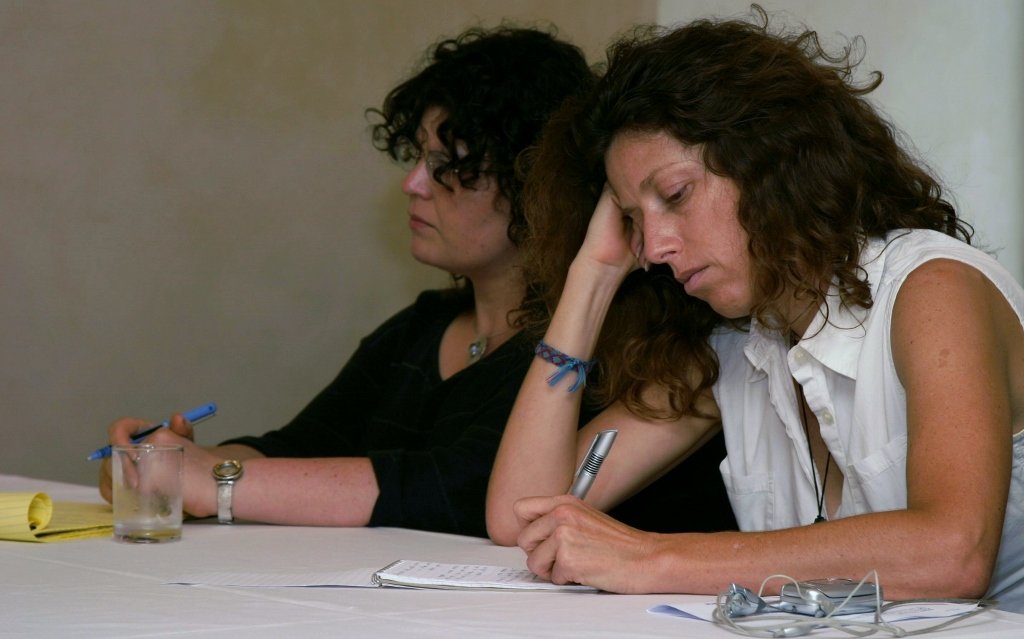Share This Story, Choose Your Platform!
This article follows on from the article “An Invitation…”
“You will lose your faith if you study theology.” – That was the warning that accompanied me on my journey from teenager to tweenager. It did not let me rest – sometimes I felt persecuted by it.
In the mid-1980s, I started studying theology with great doubts and reservations. I saw myself led to it by my Father in heaven. I hadn’t managed to avoid it. And then I saw no alternative to learning the biblical languages Hebrew, Aramaic and Greek really well in another way than by studying at university.
“You’re going to lose your faith!”
Over time, this warning from well-meaning brothers and sisters turned into a question: How come theology students lose their faith during their studies? What is going on? What is the reason for such a fundamental change of heart in people who have chosen their studies because they have an above-average interest in Scripture? How come there is something that can snatch young people out of their Master’s hand after all – despite all promises to the contrary (John 10:27-29)?!
A plethora of conversations, the observation of dear friends and not least the reflection of my own thoughts, crises and developments have led me to the following thesis: In most cases, it is not trust in the Word of God that breaks down, but trust in a theological system, a body of thought, a human conception or philosophical theory about the Word of God.
It turns out to be fatal if we equate any system of thought with the Bible itself; if we are no longer able to distinguish one from the other, so that ultimately a breakdown of trust in our own way of thinking or believing becomes a breakdown of trust in the Word of God if self. Perhaps I need to explain this in more detail and widen our perspective for this purpose.
Human thought system versus the Word of God
The story of creation teaches us that we as humans were created with the task of subduing creation, of dominating it, of controlling our environment – even the fish of the sea and the birds of the sky, as well as every living creature that crawls on the earth (Genesis 1:28). It is therefore completely logical that we instinctively try to “grasp” things, i.e. to get a grip on the situations we experience. Loss of control never conveys a sense of well-being. That is good and God-given. It is one aspect of our Godlikeness (Genesis 1:26-27).
A tension now arises from the fact that the Creator has never called us to autonomy. He desires and seeks in us a counterpart who reciprocates His love. Out of this relationship with Him, we are to be His representatives in creation. As God’s co-workers[1], we are to preserve and manage His creation and shape it towards Him.
God invites us on a journey
That is why the living God speaks up and invites His creatures to take a walk together with Him. This was not only true for Adam and Eve when they heard the Lord God walking in the Garden of Eden when the day had turned cool (Genesis 3:8). This was the case with Abraham, who had to leave his home in Ur of the Chaldeans to eventually go to a land that the Lord would show him (Genesis 12:1).
This is what happened to the descendants of Abraham. God allowed them to become a national community by leading them to Egypt and then from there back to the land of Canaan. This is the fundamental problem of the Jewish people, to whom up to this very day the living God has simply not granted a way of living as if there is no God. This applies right up to the New Testament and our present day when Jesus Christ calls people to follow Him.
Growth as a challenge
One characteristic of this kind of communion between God and man is that everything is constantly changing – just as growth is a basic principle of creation. The aim and purpose of the exercise is to be together on the road, much less to arrive. “Lead your life before me step by step and [thus] be perfect!” (Genesis 17:1), God had explained to Abraham.
We humans, on the other hand, want to hold something solid in our hands. We want to understand, comprehend, know what is going on. If someone is unable to explain what they want in two or three sentences, we are just as suspicious, as to the invitation of those people who had met Jesus: “Come and see!” (John 1:46) – instead of saying briefly and clearly what the issue is.
That is why, immediately after the exodus from Egypt, the Hebrews responded to God’s request, “I want to dwell in their midst”, by sending Moses to Mount Sinai as their representative. He should listen to what was on God’s heart. The whole spectacle was far too hot for them. And Moses could then tell them what God wanted (Exodus 20:19).
When God gets too close to a human being
As soon as Moses was out of sight, the unleashed slaves crafted something that was understandable, communicable, explainable and, above all, predictable. The goodwill to incorporate what Moses would then bring back from his mountain tour into their system was definitely existent. That is why the Golden Calf was not called an “alternative deity” or “idol”, but “the gods who brought you out of the land of Egypt” (Exodus 32:4).
However, it was never the Creator’s intent to provide His human beings with the raw material for some religion, fragments from which a pure biblical teaching should be constructed. His desire has always been and remains immovable: “I want to dwell in their midst”[2]. Therefore, the whole of Scripture is oriented towards John’s vision, who has “a new heaven and a new earth” in mind, and thus “the tabernacle of God among men”, where He “will dwell with them. They will be His people. He Himself, God with them, will be their God”.[3]
God’s tabernacle with men…
Throughout biblical history, we may recognize the efforts of the Father in heaven to reach out to humans and build a relationship with them. All the construction efforts of sanctuaries that we find in Scripture were communication efforts by the Father to not lose sight of the way to the tree of life and, thus, of the way to the Father; to preserve it, to keep it open (Genesis 3:24).
On the human side, at the same time, it is obvious that a relationship with this unpredictable God from Mt Sinai is somewhat unpleasant, even scary. What God says is therefore usually quickly defused into doctrine, theology, a philosophical system. What wants to be accepted must be balanced. Good, impressive, decisive experiences are recorded and become the basis of behavioral patterns. Objects that were utilized by God for salvation in certain situations, such as the bronze serpent (Numbers 21:4-9), become objects worthy of veneration, relics. What can be understood is worshipped or conjured up through magic. What is beyond human comprehension is avoided, evaded, denied. That is religion.
…and our pious, religious escape from Him
Perhaps it is God’s grace when human constructs, concepts, systems of thought and biblical teachings break down – even if it’s through studying theology? Could it be that some liberal professors of theology may have had the function of King Hezekiah?
Hezekiah smashed the bronze serpent because it had become an object of idolatry (2 Kings 18:4). Originally, it had actually been crafted by Moses at the express command of the Lord Himself (Numbers 21:8). It had indeed saved the lives of numerous Israelites during their wanderings in the desert. And yes, Jesus Himself saw the bronze serpent as a signpost towards the cross on which the Son of Man had to be raised up (John 3:14-15).
Could it be that some dogmatic orthodoxy, from God’s point of view, is nothing more than the cult of a dusty relic?
Everyone has images in their head
I realize that there is no one who does not have a system in mind when they open the Bible. No one is without glasses when he or she encounters the biblical text. Everyone associates ideas and images when he or she hears certain words or sees certain scenes.
It would be important to me that we are fundamentally clear about this – and work on recognizing what this means in concrete terms. That we discuss the consequences of our systems of thought, which we all too often take for granted, as well as the consequences of our cultural influences and of the traditions that our fathers passed down to us.
When “Solus Christus” becomes a false doctrine…
To give you an example, I myself am strongly influenced by German Lutheran pietism, in which the four “Soli” are central: Sola scriptura. Sola gratia. Sola fide. Solus Christus – Scripture alone. By grace alone. By faith alone. Christ alone. These principles have shaped my thinking, my reading the Bible and my life. And I am very grateful for this!
On the path that the Lord then led me on, however, I had to realize that these core elements of my personal faith that had become so dear to me could all too quickly turn into false doctrine. This happens, for example, when I fill the term “Christ” with meanings that enable me to see, understand and worship Yeshua, the Messiah of Israel, completely detached from His people.
Those who see Jesus Christ as their personal savior, but do not understand that the Jewish people must be a point of reference for followers of Jesus, must accept the suspicion that they are chasing after a phantom of Christ that no longer has much in common with the Messiah of Israel revealed to us in the Bible. “Solus Christus” detached from the environment that the living God has formed with great care over thousands of years, in order to then place His Son right into it, becomes a false doctrine.
…just like Islam
None of us is immune to following the same path as the followers of the Prophet Mohammed. They undoubtedly intend to worship the Creator of heaven and earth, the only true God, who revealed Himself to Abraham. To this day, this goodwill cannot be denied to any Muslim who takes their religion seriously.
However, Islam then distorted the Bible’s statements about the Father in heaven to such an extent that hardly anything of the self-revelation of the God of Israel can be recognized in the Quran and the hadiths. In any case, there is no Father left in heaven, because Allah has no son[4].
Orthodoxy as sin
Systems of thought, doctrines and traditions can be very helpful in understanding fundamental truths. It becomes problematic when we are no longer able to distinguish them from the biblical word as human attempts of explanation. Orthodoxy misses the mark – that is, biblically speaking, it becomes sin! – when our traditions serve to override the Word of the one, true, living God.[5] Orthodoxy is sin if it ignores even parts of what the Bible says.
A way of thinking, a system, is often revealed by the words we use. This observation is the reason for my personal distrust of all concepts that are brought to the Bible from outside, from a human philosophy or way of thinking, in order to justify dogmas – while the Bible is actually misused to underpin human ideas and standards.
What is the bottom line?
No, I am not advocating a postmodern relativism in which arbitrariness takes the place of God and everyone is allowed to find happiness on their own terms. If discipleship and a relationship with the one, true, living God are more than empty, romantic phrases, then commitment, clarity and reliability are inseparable from a genuine faith-relationship.
Yes, with these thoughts I am definitely scratching at the splendor, the glory and the throne of the queen among the theological disciplines, systematic theology. But is it not ultimately thanks to the veneration of this queen that the Christian church today is bursting with orthodox believers – while at the same time there is practically no one left who is able to read the Word of God in its original languages – let alone understand it.
No, I do not apologize when people come to me after a Bible study and confess: “But now I’m totally confused…” – if that means that traditions begin to show cracks that have served (even indirectly!) to distort or corrode the Word of the Father in heaven or even rob it of its power.
Footnotes:
[1] See not only the creation account, but also 1 Corinthians 3:9 in context.
[2] For example in Exodus 25:8; 29:45-46; Numbers 35:34 or Ezekiel 43:7+9 and Zechariah 2:14+15 – as well as the use of the Hebrew word root שכן/shakhan in general.
[3] The Greek word translated as “tabernacle” in Revelation 21:3, ἡ σκηνὴ/he skene, is deduced from the Hebrew language. It still shows the root שכן/shakhan, “to dwell”, recognizably. Derived from this, the term שכינה/shekhinah, which only occurs in rabbinic Hebrew, describes the glorious presence of the one, true, living God.
[4] Suras 6:101; 17:111; 19:35; 23:91; 112:3; compare further Suras 2:116; 10:68; 18:4; 19:88-92; 37:152.
[5] Matthew 15:3.6; Mark 7:8-9.13.






















